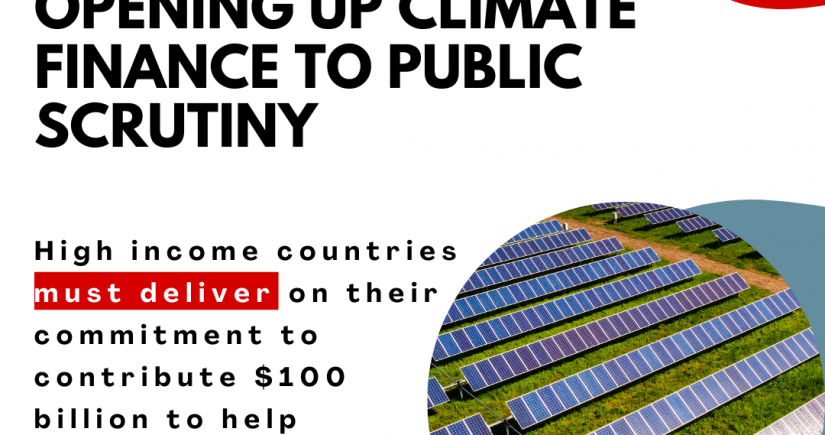Helping emerging economies to tackle the climate emergency is extremely significant.
In the light of the risks to these funds, the Infrastructure Transparency Initiative (CoST) with our partners, Engineers Against Poverty (EAP), held a virtual forum which concluded that it is critical to open climate finance to public scrutiny as a key action to ensuring real social impact.
This virtual forum, attended by over 100 people from Europe, the Americas, Africa and Asia, was held in the context of COP27.
CoST and EAP brought together a panel of experts to discuss the issue. They included: Prof Priti Parikh, EAP Board Member and Acting Head of the Bartlett School of Sustainable Construction, University College London; Prof Richard Calland, Cambridge Institute of Sustainability Leadership and Co-Chair Independent Expert Group on Climate Finance; Albert Lihalakha, Deputy Head of the Independent Integrity Unit, Green Climate Fund (GCF); and Pamela Acheng, Lecture in Civil Engineering, Makerere University, Uganda.
The panelists emphasised that opening climate finance to public scrutiny could reduce the risks of more money being lost to inefficiencies and corruption.
In 2022, the Occupational Global Survey of the ACFE reflected that corruption was common in every global region, and the “50% of that resulted in losses. So, by any measure, these are really staggering and detrimental to communities”, analysed Albert Lihalakha, Deputy Head of the Independent Integrity Unit, Green Climate Fund.
Although the way ahead is clear, the world faces challenges. For instance, the solutions are not progressing in the same pace as the flagellations that undermine transparency processes. The Green Climate Fund created the Independent Integrity Unit as an accountability mechanism established by the board to investigate misconduct, fraud, corruption and other prohibited practices in GCF-funded activities.
“We all want good governance. This panel is about good governance, about accountability and transparency. But the time is so short. It may be that we must take some judicious risks in order to get more money out of the door to really catalyze the kind of urgent change that’s needed”, affirmed Prof Richard Calland, Cambridge Institute of Sustainability Leadership and Co-Chair Independent Expert Group on Climate Finance.
The truth is that the longer transparency and support for emerging economies is delayed, the more these countries will continue suffering from the impacts of climate change.
Pamela Acheng, Lecture in Civil Engineering, Makerere University, Uganda; described one of the many examples in the world: Uganda; and says, “most pledges that the country made was in reducing climate vulnerability of climate sensitive sectors, especially things like agriculture, transport to build on climate resilience of key sectors, to manage disaster risks and so”.
Nevertheless, she added “I could say that from the Ugandan perspective, there are still strategies that are now geared towards adaptation as compared to in the past where a lot of our strategies were towards”.
The people deserve a world where decisions are made in the public interest; resources are used efficiently and effectively to deliver quality that benefits the people.
We believe that CoST, the Infrastructure Transparency Initiative, and the Engineers Against Poverty (EAP) can help to do this. We operate in 20 countries worldwide and has supported governments publishing data on nearly 80,000 infrastructure projects, including enhancing e-procurement platforms. Plus we have reclaiming sustainable infrastructure as a public good at the C20 Summit. We also have developed open data platforms such as INFRAS that provides detailed information of the environmental risks of the projects and open data from different institutions which include clarity and understanding of regulations and environmental risks, decision making and processes to reduce negative impacts in the environment, which could contribute to face the challenge we are facing.
